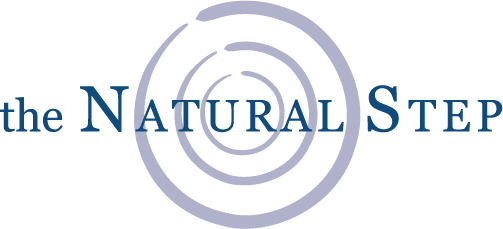Good Guys & Bad Guys: They're All Part of the Same Unsustainable System
Good guys & bad guys: They're all part of the same unsustainable system
On June 4, environmental groups and other organizations are blacking out their web sites to protest Bill C-38. We won't be blacking our web site out, but we do have something to say.
At The Natural Step Canada, we are not experts in the policies being debated. Other groups have considerably more to say on the implications of the policies in question.
But what we can speak to—from a standpoint of considerable experience—is the unfortunate tone of this public debate and the government’s divisive approach that has led us to where we are.
We need a different way forward and know that a better way exists. We have experienced it countless times in the hundreds of inspiring projects that we have been a part of with businesses and communities across the country.
The public framing of the issues, especially recently, would seem to suggest that we must either be on the side of the environment or on the side of jobs and the economy. This is nonsense.
As I have written before, my view is that there are very few people who wake up every day with the intention to do harm to natural or social systems, and very few people who would disagree with the need for stable jobs and prosperity.
Sustainable development is essentially about having an integrated view of these matters, and thousands of organizations around the world—including large and small businesses in every sector—have been working on it for years. Some might be surprised to know that I’ve met some of the most sophisticated thinkers and practitioners on sustainable development working for companies like Suncor. Are these good guys (and gals) or bad guys?
As President & CEO of Imagine Canada Marcel Lauzière so eloquently and forcefully points out in a public letter to Environment Minister Peter Kent (in response to comments the Minister made last month), people working in environmental groups and other charities obviously don't appreciate insinuations or direct statements that suggest their advocacy about environmental issues is somehow against the national interest because it might block economic activity. Even worse is the suggestion that they should not have the right to advocate their views and the absurd insinuation that they may be involved in illegal activities.
Are these people really the bad guys?
On the other hand, environmental advocates have in some cases been trapped in a similar frame of mind. David Suzuki recently wrote an article called "Environmentalism has Failed." I must say that I agree with him about the need for a paradigm shift. At The Natural Step Canada, this is the business we're in. This is the work we do.
If environmentalism has failed, it is at least partly due to a "good guys vs. bad guys" approach. The best case in point is the issue of the oil sands and its relationship to the rest of the country. Just as environmental groups don't like insinuations that they are "bad guys," it appears that Albertans don't like insinuations that they are "bad guys" because of their oil and gas economy.
The environmental impacts of the oil sands are severe—no question. The severity of the impacts is of course related to the pace of the development of the oil sands, which is driven in part by the demand for oil, which is driven in part by the needs of our transportation system, which is driven in part by our land-use and community development patterns, and so forth. You can see how quickly this reaches our own homes and lives.
What the "good guys vs. bad guys" approach fails to acknowledge (from either side) is that the activity and players in question exist within a system—a complex system with almost infinitely interconnected parts. Within this system, the causes and effects between economic activity and environmental and social impacts are almost impossible to pinpoint directly.
While there are undoubtedly some villains and heroes in this drama, the vast majority of those involved—on all sides—are neither. They are simply good citizens who want to do right by their neighbours and create a good future for their children. They are us.
In the case of the oil industry, how can we claim any moral superiority over an industry whose product we ultimately use so frequently?
It is the systems themselves that are unsustainable. And it is at the systems level that we must act. The only way that we are going to have any hope of leaving a better future for our children is if we can respectfully engage with one another as co-participants within our unsustainable systems, seeking deeper levels of understanding, and applying our extraordinary creativity and innovation to the challenge of transitioning to a sustainable future.
The good news is that this is happening—all over the world, in all kinds of systems. The good guys and the bad guys, whoever they may be, are finding ways to work together to solve big problems and create shared value.
That’s the better way. And we should demand it of our leaders, our media, and of ourselves.
Chad Park is the Executive Director of The Natural Step Canada, an organization dedicated to systemic change toward a more sustainable future. Learn more about the Sustainability Transition Lab, a program focused on multi-stakeholder collaboration toward systems-level change.

